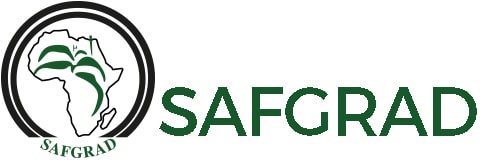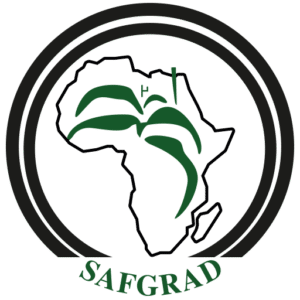1. Background
Irrigation and use of other agricultural water management practices is key to agricultural intensification in Africa. The importance of the agricultural sector can’t be overemphasized in Africa. It is seen as the backbone of most of the economies providing food, income and livelihoods to majority of the populace. It was against this backdrop that the African Union Assembly, through the 2014 Malabo Declaration defines the immediate future of most African economies around agricultural development. For the agricultural sector to play its enviable role in African economic development it must be resilient and able to mitigate the confounding and varying climatic and market related shocks. The Africa Union’s developmental blueprint, Agenda 2063 consolidates key issues and approaches to achieving sustainable economic development in the Continent. Agricultural intensification through adoption of Climate Smart Agricultural (CSA) technologies and practices is important in repositioning the African agriculture to serve as the flagship for agro-led industrialization and economic development.
The Africa Union’s framework for Irrigation development and agricultural water management (IDAWM) was developed by AU-SAFGRAD and endorsed as a continental blueprint in February 2020 https://au.int/en/documents/20200515/framework-irrigation-development-and-agricultural-water-management-africa.
The Framework covered the entire scope of agricultural water managed areas; from land management under rain fed farming to irrigation schemes from pure blue water abstraction and use of conventional and unconventional water sources for irrigation. The Framework was intended to reinvigorate regional and national interests in agricultural water management for agricultural intensification in the Continent. The four development pathways (not mutually exclusive) proposed in the IDAWM framework are:
a)PATHWAY 1: Improved water control and watershed management in rain-fed farming
b)PATHWAY 2: Farmer led irrigation development
c)PATHWAY 3: Irrigation scheme development and modernization
d)PATHWAY 4: Unconventional water use for irrigation
In 2020, AU-SAFRGAD in collaboration with Partners initiated the domestication of the Framework. The virtual workshop addressed the general policy, financial and technical challenges and interventions needed for the sustainable implementation of agricultural water development pathways. Key outcome of the workshop was the need to specifically, beam the light, through a scoping survey, on MS’ status. In 2021, AU-SAFGRAD with Partners plan to conduct a continental survey of MS with respect to specific typology, opportunities for scope and implementation challenges of the development pathways proposed in the Framework. The diagnostic survey will provide update of status/progress and challenges as well as identify success factors for knowledge management in the sustainable implementation of agricultural water management practices for agricultural intensification in MS.
2. Objectives of the Assignment
Specifically, the study will:
a)Identify typologies of farming systems intersected with AWM and report update on MS status for each of the agricultural water management pathways identified in the IDAWM Framework
b)Assess the opportunities and challenges for implementing the identified pathways
c)Document key success factors and lesson learned for sustainable implementation of agricultural water management practices
d)Identify and report intervention areas/project ideas for bankable development projects in agricultural water management for climate resilience, livelihoods and food security impact.
3. Methodology and Scope
The survey is expected to draw sample from at least 9 countries taken into consideration the sub-regional balance. The study will use a mix of qualitative and quantitative techniques from desk reviews and key informant interviews for data collection. It is expected that, among others, the key informants will be drawn from relevant ministries, department and agencies (MDA) in selected Member States. The reports will be validated in a stakeholders workshop to be organized by AUC. The report is expected to serve as Member States’ reference, engagement with development partners, for specific interventions to fast track adoption and implementation success of IDAWM development pathways.
4. Deliverables/Reports and Schedule of Delivery
The Consulting firm will submit the following reports as part of the deliverables:
a)Inception report:
This should be submitted shortly after the commencement date and will be the evidence of payment of the 1st tranche (40%)
b)Draft report:
This should be submitted after 12weeks of contract commencement. The report would have a general introduction and methodology section while the country reports will be presented in alphabetic order.
The 2nd tranche will be paid on receipt of the draft report (30%). The Consultant is expected to submit with the draft report the following:
- The list with contact details of informants interviewed in every country
- A concise brief that identifies bankable projects for impact in each MS based
- Final report: This should be submitted on or before the 16th week of contract commencement. It is the responsibility of the Consultant to incorporate review comments and input raised by AUC and and from the validation workshop. The 3rd tranche (30%) will be paid on receipt of final reports.
5. Duration of the Assignment
The Consultancy will be for a total period of sixteen (16) weeks.
6. Consultancy Fee
The Consulting firm is expected to indicate the total consulting fee that will be charged for the study based on the scope and expected deliverables above. The budget should clearly outline the remuneration and reimbursable aspects of the costs.




